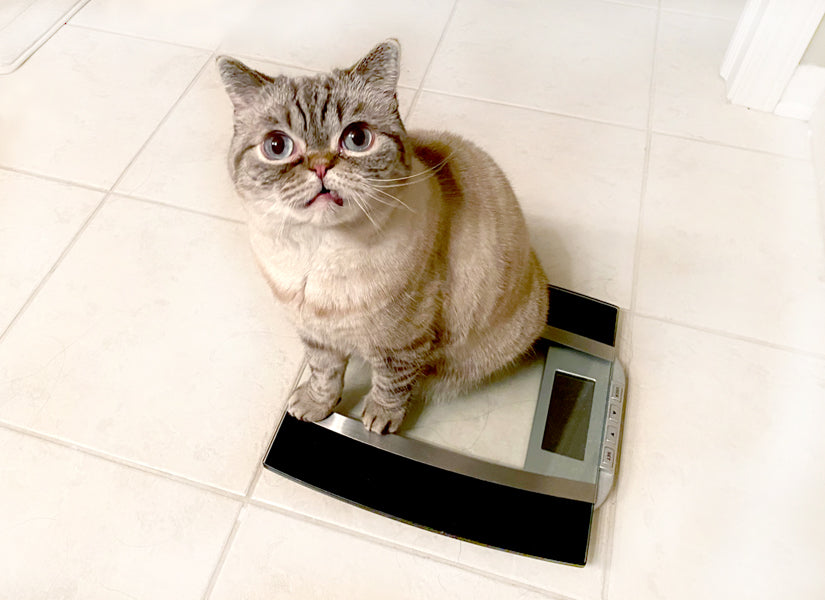Do you have a dog or cat with chronic kidney disease? If so, then this blog post is for you. Chronic kidney disease (CKD) is common in pets and can be difficult to treat since there is no cure. However, there are several ways to slow down the disease and improve your pet's quality of life.
In this post, we'll explain what CKD is and how the condition can be managed. We'll also discuss how coconut oil can help pets with CKD by providing energy and protecting the kidneys.
What Is Chronic Kidney Disease?
Chronic kidney disease (CKD) is a condition that causes gradual loss of function in the kidneys. It occurs in 1-3% of cats and 0.5 – 1.5% of dogs, and is a major cause of morbidity and mortality.
The kidneys are responsible for removing toxins and excess fluid from your pet's body, as well as regulating blood pressure levels by controlling electrolytes like sodium and potassium. They also perform other important roles such as producing or activating hormones for red blood cell (RBC) production. CKD can cause the kidneys to slowly lose their ability to perform these vital functions.
CKD is more common in older pets, usually over 10 years old. The condition often goes undiagnosed because pets don't display any obvious symptoms. In fact, according to this article from VCA Animal Hospitals, "at least 2/3 of the kidneys must be dysfunctional before any clinical signs are seen."
As the condition progresses and becomes more advanced, pets may display symptoms such as frequent urination and increased thirst. Other clinical signs to look out for include:
- Decreased appetite
- Weight loss
- Vomiting
- Diarrhea
- Depression
- Lethargy
- Weakness
If your pet displays any of the above symptoms, it's important to visit your veterinarian as soon as possible. The earlier CKD is detected, the more effectively the condition can be managed.
Kidney damage in pets can lead to a wide range of health conditions, including gastrointestinal complications, systemic hypertension (high blood pressure), anemia, metabolic acidosis, and proteinuria. If left untreated, chronic kidney disease can lead to renal failure, which can be fatal.

What Causes Chronic Kidney Disease?
There are many causes of CKD, some of which may be congenital, for example polycystic kidney disease, amyloidosis, or renal dysplasia. However, kidney disease may be acquired from kidney trauma, infection, or immunological disease (which may cause damage or inflammation to the kidneys), nephrotoxic drugs or toxins (i.e.: NSAIDs, some immunosuppressive drugs, antimicrobials, and antifungals), which cause stress on the kidneys.
How Can Chronic Kidney Disease Be Managed?
As we mentioned earlier, unfortunately there's no cure for CKD in cats and dogs. However, there are several strategies that can be used to help manage the condition. Depending on the stage of the condition, the age of the animal, and their general health, kidney disease can be adequately managed by diet and supplementation. You may need to adjust your pet’s diet, which may include avoiding excessive phosphorus, sodium, and urinary acidifying diets.
Other dietary changes may include increasing high-quality and bioavailable proteins, antioxidants (such as vitamin E), increased fiber to help with digestion, and additional calorie dense foods to avoid malnutrition. Another important consideration is fluid therapy, which can be used at home or in a veterinary hospital setting to keep your pet properly hydrated.
Although low-protein diets have traditionally been used to manage CKD, most holistic vets now agree that feeding a highly bioavailable protein is important to prevent muscle-wasting. This can be achieved by serving a high-quality, species-appropriate diet and avoiding processed pet foods which are high in carbohydrates and contain low-quality protein sources, such as corn gluten and soybean meal.
Managing Chronic Kidney Disease with Supplementation
In addition to a high-quality protein diet, supplementation plays an important role in managing CKD. Work with your veterinarian to come up with a list of vitamins, minerals, and nutraceutical supplements that can help manage your pet's condition. Here are some suggestions that can be highly beneficial for cats and dogs with CKD:
- Probiotics - Beneficial bacteria reduces azotemia and flushes out uremic toxins that have diffused into the bowel. Probiotics treptococcus thermophilus, Lactobacilus acidophilus, and Bifidobacterium longum support kidney function by providing natural enteric dialysis and slowing down the buildup of uremic toxins in the blood.
- Potassium (K). Potassium is often lost at an elevated rate with CKD. Potassium may help increase appetite and activity level. Note: if hyperkalemia develops, you may need to feed a low K diet.
-
Omega-3 fatty acids. May help protect the kidneys by lowering glomerular capillary pressure and reduce production of pro-inflammatory eicosanoids.
Antioxidants. Vitamins E, C, carotenoids, polyphenols – reduces oxidative stress and DNA damage. - B vitamins. Increase appetite. Deficiency in vitamin B may occur due to diarrhea and vomiting, where thiamin and niacin deficiency may lead to anorexia.
- Fiber. Soluble or fermentable fiber is a valuable addition for maintaining CKD. Because intestinal dysbiosis is common in CKD patients, increased fiber encourages microbial fermentation and promotes microbiota homeostasis. This results in the production of short-chain fatty acids (SCFAs) for a source of energy to gut bacteria and helps maintain gut/barrier function. In addition, fiber helps more nitrogen excretion via the feces. CocoTherapy Organic Coconut Chips are a highly palatable, bioavailable source of fiber, which has shown to be effective in supporting GI health.
- Medium-Chain Triglycerides (MCTs). MCTs are an easily digestible form of fat that doesn’t need pancreatic enzymes or bile for digestion and is rapidly utilized by the liver for much-needed cellular energy. We recommend using a therapeutic-grade Virgin Coconut Oil or if your pet is highly fat-intolerant, use a MCT oil with some levels of lauric acid, such as TriPlex MCT-3 Oil.
How Coconut Oil Can Help Manage Chronic Kidney Disease
Coconut and coconut oil have been used for therapeutic purposes for centuries. They are known to improve the absorption of minerals, B vitamins, fat-soluble vitamins (A, D, E, K, and beta-carotene), and amino acids. The medium-chain triglycerides (MCTs) in coconut oil also provide a much-needed energy source for animals that are lethargic and weak because of CKD.
Several studies have shown that coconut oil may be useful in the treatment of kidney disease. It has been shown to have a protective effect on the kidneys and help prevent bacterial infections thanks to its potent antimicrobial and anti-inflammatory properties. In addition, scientists have demonstrated that coconut oil can help manage blood pressure in CKD patients.
When giving virgin coconut oil a pet that's suffering from CKD, always choose a vet-recommended, therapeutic-grade coconut oil, such as CocoTherapy Virgin Coconut Oil. Our oil contains at least 53% lauric acid (compared to 40% or less in grocery store brands). Lauric acid is the most abundant medium-chain fatty acid (MCFA) in virgin coconut oil. It's a powerful "super ingredient" that provides a wide range of health benefits for pets, including the power to boost the immune system, protect the skin and coat, and keep the gastrointestinal tract healthy.
Wrapping Up
If your pet is suffering from CKD, it's important to consult with your holistic veterinarian. They will be able to recommend a high-quality protein diet, as well as suggest necessary supplements that can help manage the condition and improve your pet's overall quality of life. Check out these informative articles from VCA Animal Hospitals for more information about CKD in cats and dogs.



